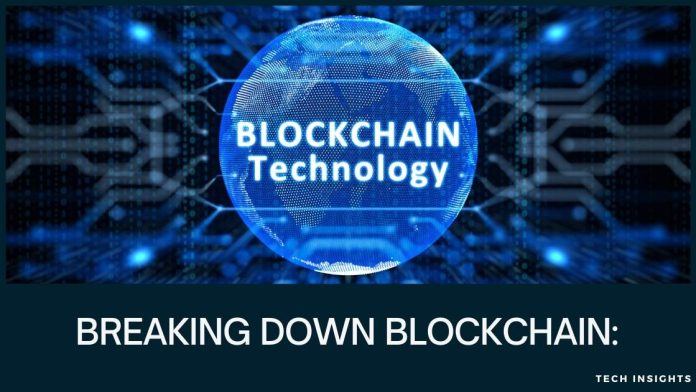Terms like “blockchain” and “crypto” can feel like an exclusive club where you need a Ph.D. in computer science to even get in the door. But here’s the truth: blockchain isn’t just for tech geeks or Wall Street investors anymore. It’s quietly reshaping industries, from finance to supply chains, art to real estate—and you don’t need to be an expert to understand how it works or why it matters.
Whether you’re a curious learner, an entrepreneur, or someone who just wants to stay ahead of the curve, understanding blockchain could be one of the smartest moves you make this decade. Let’s unpack this revolutionary technology in plain English—and maybe even get a little inspired along the way.
What Is Blockchain?
Imagine a notebook that everyone can see, but no one can erase or cheat. That’s the basic idea of a blockchain.
In simple terms, blockchain is a decentralized digital ledger. Instead of being stored in one place (like a traditional database), this ledger is shared across a network of computers, or “nodes.” Each transaction is recorded in a “block,” and these blocks are linked together chronologically—forming a chain (hence the name).
Once information is added, it’s nearly impossible to alter without the consensus of the network. That’s what makes blockchain transparent, secure, and trustless (meaning you don’t have to rely on a middleman or central authority).
Why Blockchain Is a Game-Changer
Blockchain is more than just the tech behind Bitcoin. It’s a shift in how we store and share information. Here’s why it’s revolutionary:
✅ 1. Decentralization = No Single Point of Failure
Unlike traditional systems where everything depends on one central server (think banks or data centers), blockchain spreads data across thousands of nodes. This reduces the risk of hacks, fraud, or downtime.
✅ 2. Transparency Builds Trust
Every transaction on a blockchain is visible to participants. This level of openness can radically improve how businesses operate and how governments maintain accountability.
✅ 3. Immutability = Unchangeable Records
Once something is on the blockchain, it’s nearly impossible to alter. This makes it ideal for legal records, financial transactions, and even voting systems.
✅ 4. Smart Contracts Automate Agreements
Smart contracts are self-executing contracts with rules coded directly into the blockchain. They automatically carry out terms once conditions are met—no need for lawyers or middlemen.
Real-World Uses of Blockchain
You’ve heard of Bitcoin and Ethereum. But blockchain’s real power goes far beyond cryptocurrencies. Check these out:
- Supply Chain Management: Companies like Walmart use blockchain to track food from farm to shelf. It improves safety and transparency.
- Healthcare: Medical records can be stored securely and shared instantly between providers—giving patients better care with less red tape.
- Digital Identity: Blockchain-based IDs could give billions of people access to financial services who currently have no formal identification.
- Voting Systems: Blockchain can eliminate voter fraud and make elections more secure and transparent.
- Intellectual Property & NFTs: Artists and creators can prove ownership and sell digital goods directly using NFTs (non-fungible tokens).
Actionable Tips to Get Started with Blockchain
Curious to dip your toes into blockchain without feeling overwhelmed? Here’s how to start:
1. Start with the Basics
Before diving into investments or projects, take some time to learn. Websites like Coursera, Khan Academy, or YouTube have beginner-friendly blockchain courses.
2. Use a Crypto Wallet
Even if you don’t plan to buy cryptocurrency, setting up a wallet (like MetaMask or Coinbase Wallet) helps you understand how blockchain works in practice.
3. Explore Real Projects
Look into real-world applications like VeChain (supply chain), Chainlink (smart contracts), or Civic (digital identity). These show blockchain’s potential beyond hype.
4. Join a Community
Reddit, Twitter, and Discord are home to thousands of blockchain communities. Jump into conversations, ask questions, and learn from others.
5. Stay Updated, Stay Skeptical
The blockchain space moves fast—and not every new coin or project is legitimate. Always research thoroughly before investing time or money.
Frequently Asked Questions (FAQs)
1. Is blockchain only used for cryptocurrency?
Not at all. While Bitcoin made it famous, blockchain has applications in finance, healthcare, voting, supply chains, and more. Cryptocurrency is just one piece of the puzzle.
2. Can blockchain be hacked?
It’s extremely difficult. The decentralized nature of blockchain means hacking it would require altering data across thousands of nodes simultaneously—a nearly impossible task.
3. How does blockchain make money?
There are several ways: mining (validating transactions), investing in crypto tokens, creating smart contract platforms, or building blockchain-based services or apps.
4. Is blockchain environmentally harmful?
Some blockchains (like Bitcoin) use a lot of energy due to “proof of work.” But newer systems like Ethereum 2.0 use “proof of stake,” which is significantly more eco-friendly.
5. Will blockchain replace traditional systems?
It’s more likely to enhance them. Blockchain won’t replace banks or governments overnight, but it can make many existing systems more efficient and trustworthy.
Blockchain isn’t just about digital currencies or flashy tech terms. It’s about reimagining trust, ownership, and freedom in the digital age. It’s a tool that empowers you—whether you’re building a business, protecting your data, or creating something totally new.
So if you’ve been standing on the sidelines, wondering if you’re “techy enough” to get involved—know this: You don’t need to be an expert to start. You just need to be curious.
Now that you’ve got a better handle on what blockchain is and why it matters, I’d love to hear from you:
What’s your biggest question about blockchain—or what excites you most about its potential?
Drop your thoughts in the comments below. Let’s learn from each other and grow together.
And hey—if you found this helpful, share it with a friend who’s been trying to make sense of blockchain. Let’s bring more people into the conversation. 🌐💡

